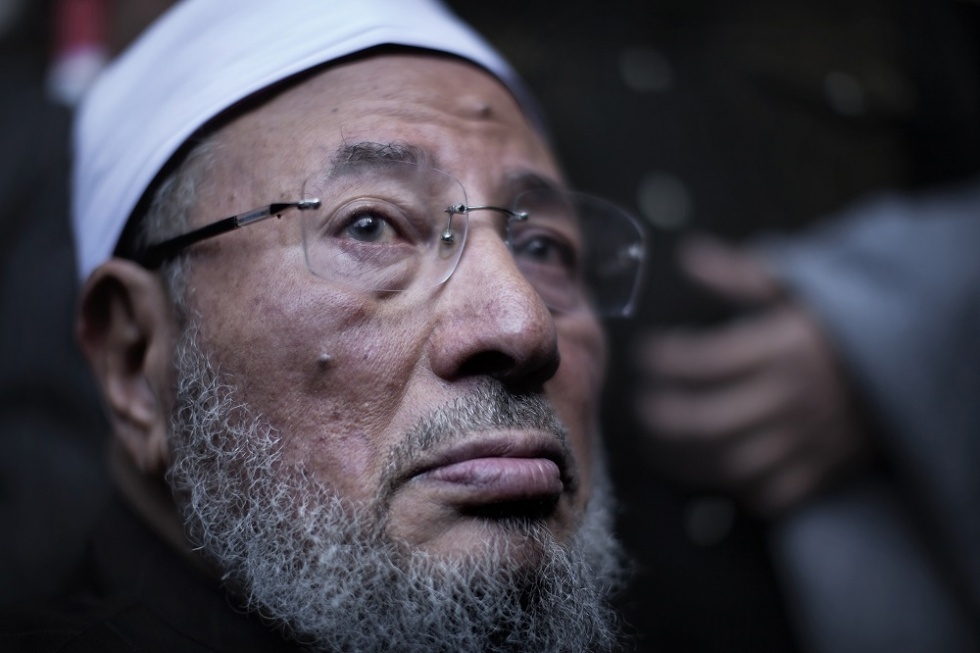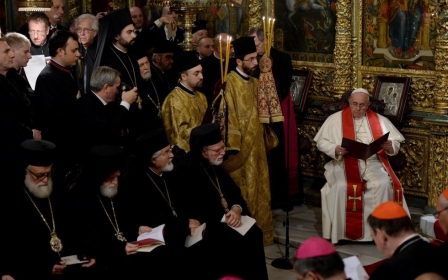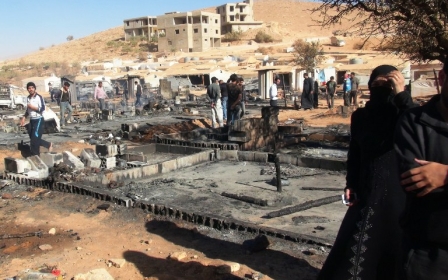Leading Egyptian cleric Qaradawi contests Interpol warrant

Responding to an Interpol warrant for his arrest, leading international Muslim scholar, Yusuf al-Qaradawi on Monday hit back by insisted that he has “neither killed anyone nor inciting murder.”
Qaradawi’s written statement was issued on the evening of 8 December, nearly three days after Interpol - the International Criminal Police Organisation – agreed to a demand made earlier by the Egyptian government, and issued an arrest warrant for more than 40 senior Muslim Brotherhood-affiliated figures. Qaradawi, the Doha-based 88-year-old Muslim scholar, is one of the most prominent figures on that list.
According to Interpol, Qaradawi, who currently serves as the chairman of the International Union for Muslim Scholars, is wanted for multiple charges, all levied by the Egyptian government under the rule of President Abdel Fatah al-Sisi. The charges include “agreement, incitement and assistance to commit intentional murder, helping prisoners to escape, arson, vandalism and theft.” Qaradawi strongly denies the allegations.
"Those who have killed thousands of innocents… are well known (yet) they are being received in western capitals, Russia and the United Nations as if they are presidents with no regard for justice or law," he wrote in an indirect reference to Sisi.
Qaradawi has previously been accused by Israel and western governments of inciting violence by declaring support for Palestinian bombings inside Israel during the Second Intifada.
Prior to the release of his statement, issued in Arabic, the Israeli military intelligence website DEBKAfile reported that Cairo’s push for arresting Qaradawi via Interpol was designed to test “Qatar’s good faith in falling in line behind the major Arab powers’ policy against the Brotherhood ahead of the GCC summit due to open in Doha next week.”
Qatar, which has hosted the renowned Muslim scholar for decades, has come under repeated pressure from other Gulf countries, including the United Arab Emirates and Saudi Arabia, in recent months to end its support for the Muslim Brotherhood.
Egypt has been at the heart of the struggle. While a Brotherhood-dominated parliament and a president came to power in democratic elections that followed the largely non-violent 25 January 2011 revolution in Egypt, a coup, led by now President Sisi, overthrew the elected president, Mohammed Morsi on 3 July 2013.
The coup leaders justified their action, saying that it was mandated by a popular call several days earlier, which they dubbed as a “second revolutionary wave.”
Since then, however, thousands of anti-coup protesters have been killed, wounded or arrested in a massive crackdown on the Muslim Brotherhood and other opposition forces throughout the country.
In late November, fresh protests broke out after a court ordered the release of former Egyptian President Honsi Mubrak, who was absolved of the remaining charges against him. The move has been widely interpreted as a reversal of the revolution’s democratic achievement, especially given that Morsi remains in jail.
An unnamed Egyptian judicial figure, commented to the Saudi newspaper, Asharq Al-Awsat that the push via Interpol was joined with other efforts by Prosecutor-General, Hisham Barakat “to investigate the activities of satellite television channels and websites affiliated with the Muslim Brotherhood”.
The anonymous source claimed that Cairo had uncovered attempts to “destabilise” Egypt, “including the broadcast of fabricated telephone conversations falsely attributed to Egyptian officials.”
The “telephone conversations” was likely an allusion to a recent leak, in which Supreme Military Council member, Major Mamdooh Shaheen is heard allegedly conversing with Navy Commander, Osama al-Jundi, who was responsible for Morsi’s arrest. In the recording, the pair conspire to falsifying documents to make the military prison, in which Morsi was held, appear to be a civilian prison tied to the Interior Ministry.
The officials allegedly talked about various matters that if confirmed, would further highlight the military top-heavy control over the judiciary and other state institutions.
The charges against Morsi include “prison raids,” similar to the charge made against the ageing scholar, Qaradawi.
Qatar is yet to officially respond to the Interpol arrest warrant.
Middle East Eye propose une couverture et une analyse indépendantes et incomparables du Moyen-Orient, de l’Afrique du Nord et d’autres régions du monde. Pour en savoir plus sur la reprise de ce contenu et les frais qui s’appliquent, veuillez remplir ce formulaire [en anglais]. Pour en savoir plus sur MEE, cliquez ici [en anglais].




